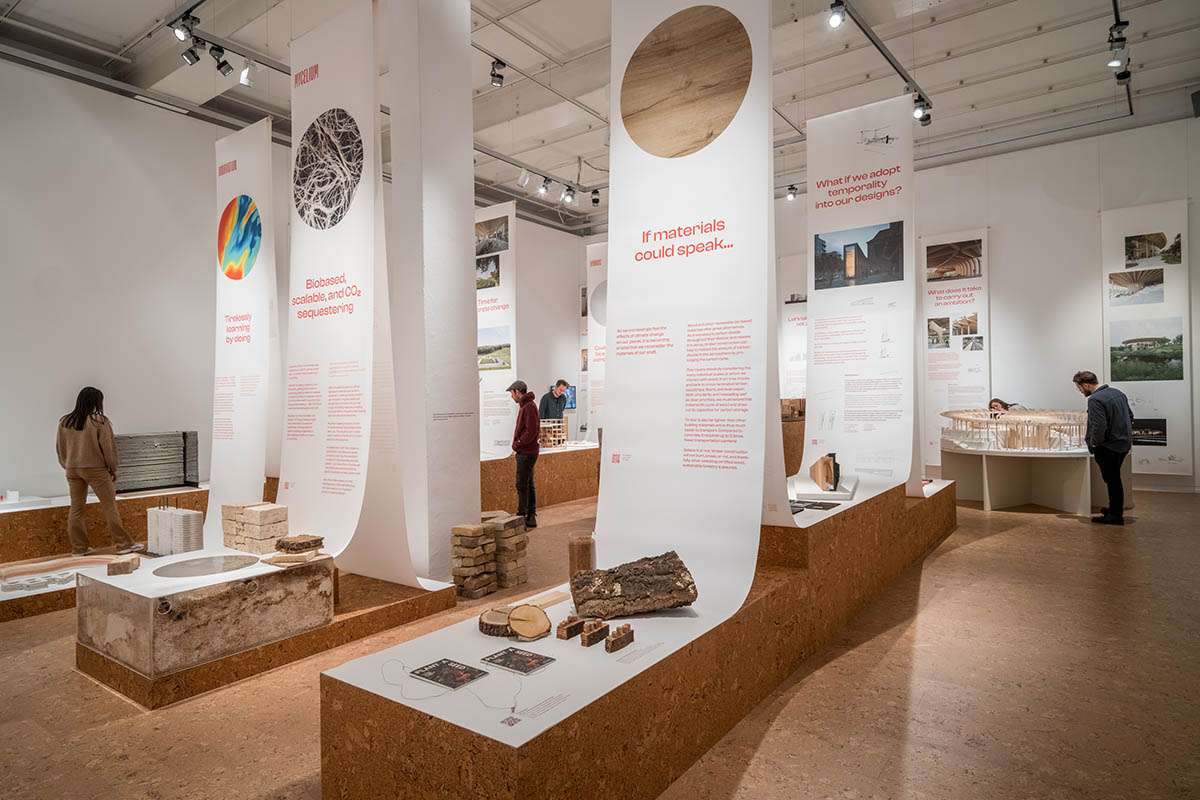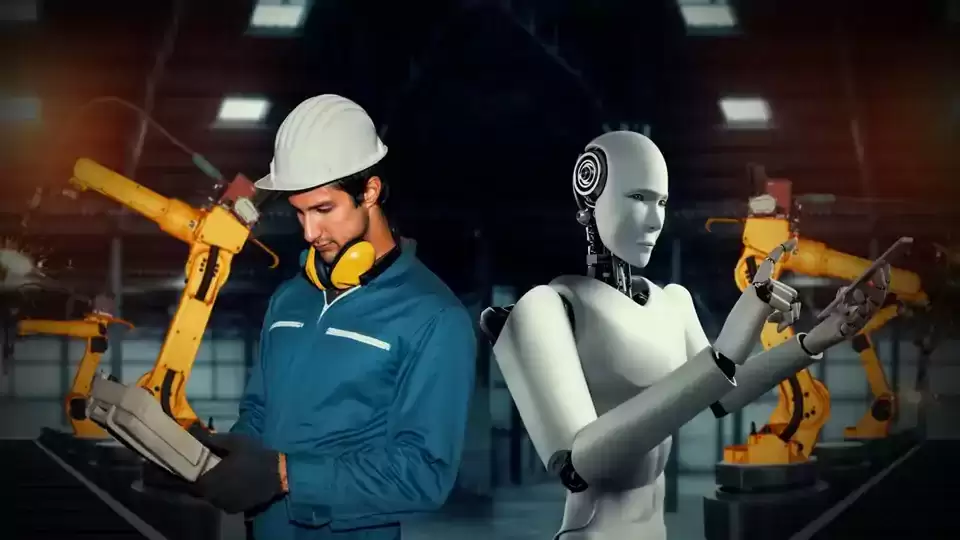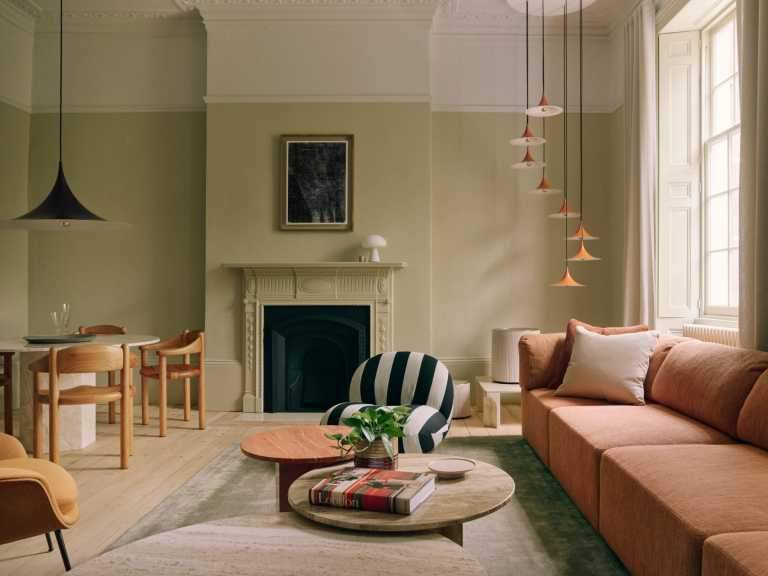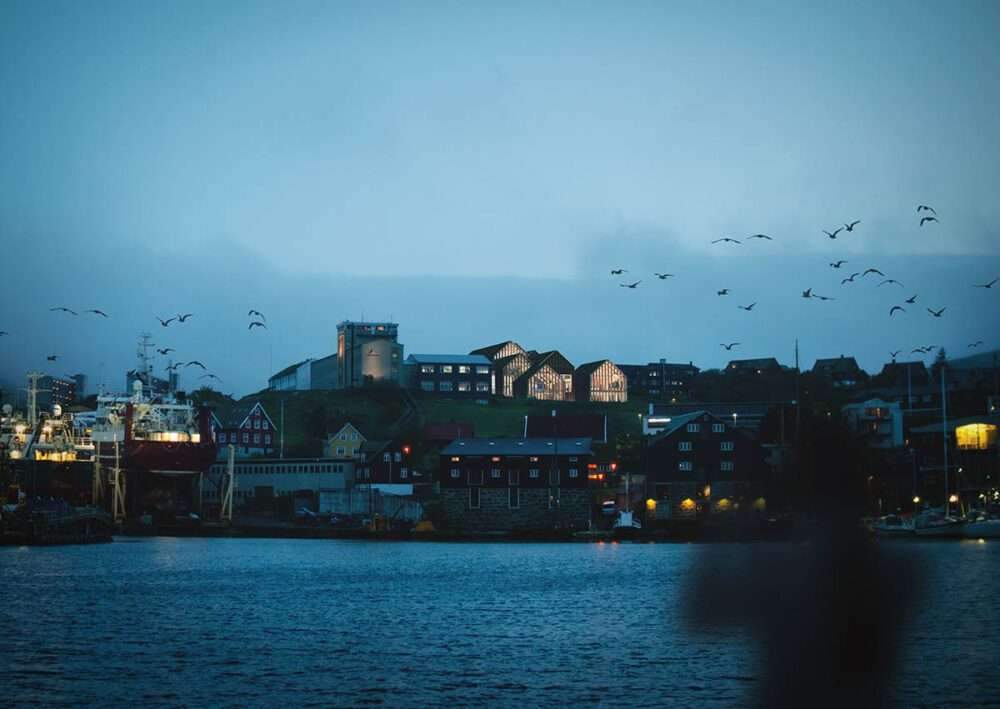Opening of an exploratory exhibition in Aedes dealing with the environmental impact of the industry
Opening of an exploratory exhibition in Aedes dealing with the environmental impact of the industry,
Danish architecture firm Henning Larsen has opened an exhibition at the Aedes Architecture Forum in Berlin,
aiming to address the huge environmental impact of the industry.
Titled Changing Our Footprint, the exhibition opened to the public on February 4, 2023,
and will remain available until March 22, 2023 at the Aedes Architecture Forum, in Berlin, Germany.
The exhibition presents Henning Larsen’s small and scalable steps
to move towards a desirable future through his built projects and the research, testing and continuous learning of the office.
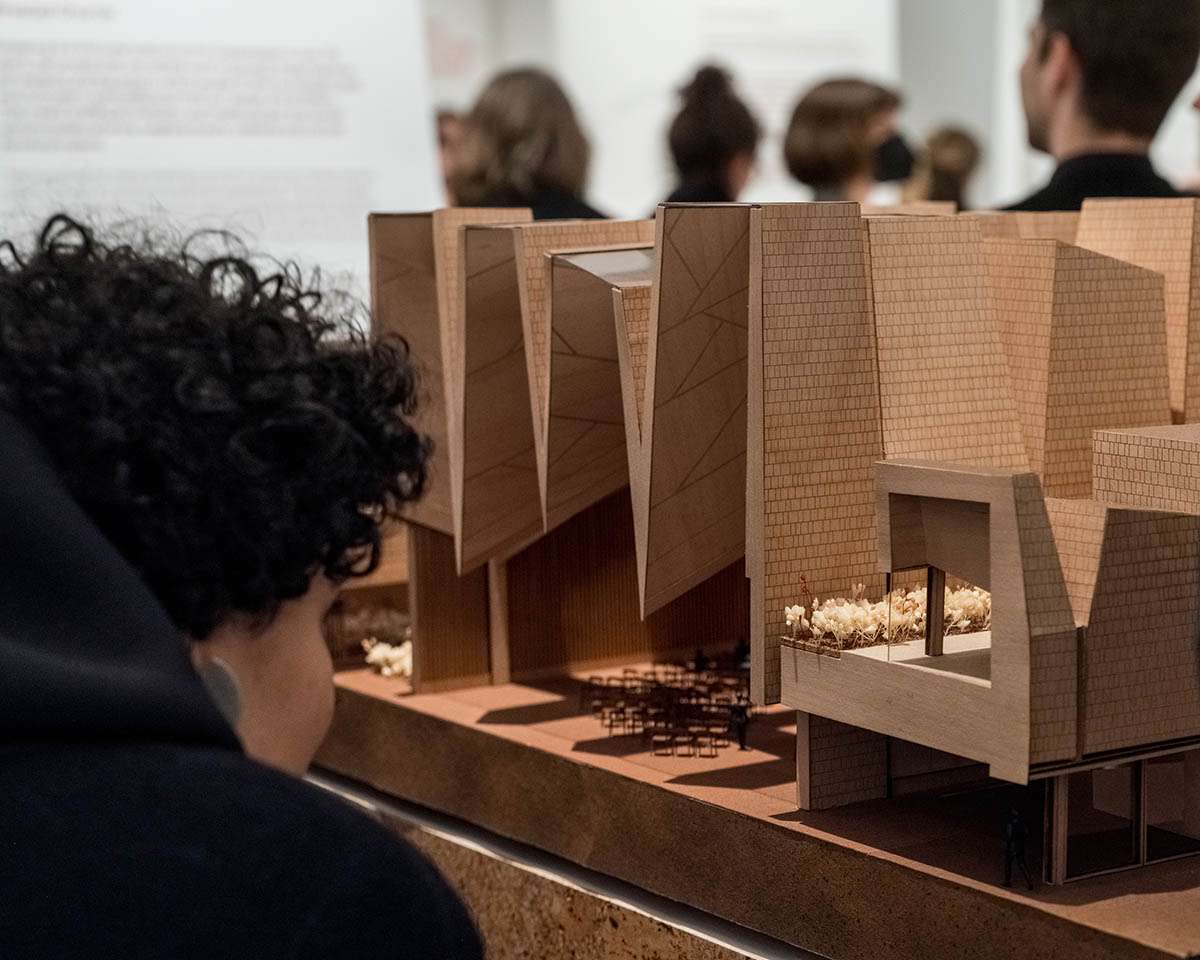
Henning Larsen’s theme was introduced with the theme of Rolling out the Drawing Paper,
and aims to create an interactive and engaging dialogue throughout the exhibition,
bringing up challenging questions and collaborating to find better solutions, continually balancing the scope of influence.
Host a series of discussions
Henning Larsen will also host a series of discussions at the Aedes Architecture Forum from Wednesday 22nd February to Tuesday 14th March.
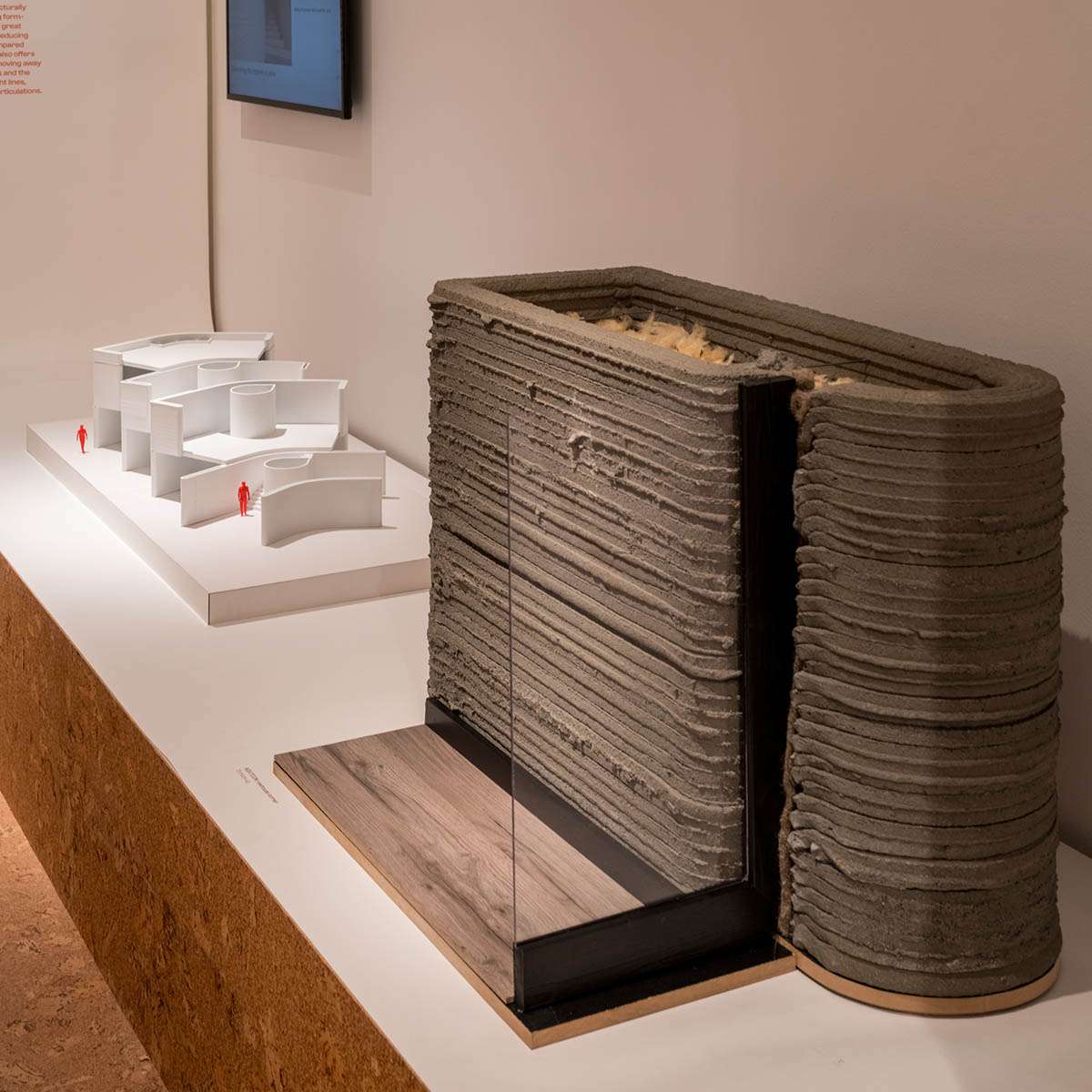
Panel discussions will bring together experts and key stakeholders on stage to frame and discuss challenges,
solutions and innovations, around the topics of water management, adaptive reuse, biomass and wood construction.
Divided into two sections: ‘Share’ and ‘Explore’,
the exhibition is shaped around a central approach aiming to share knowledge and explore vital materials and new tools in the architectural process.
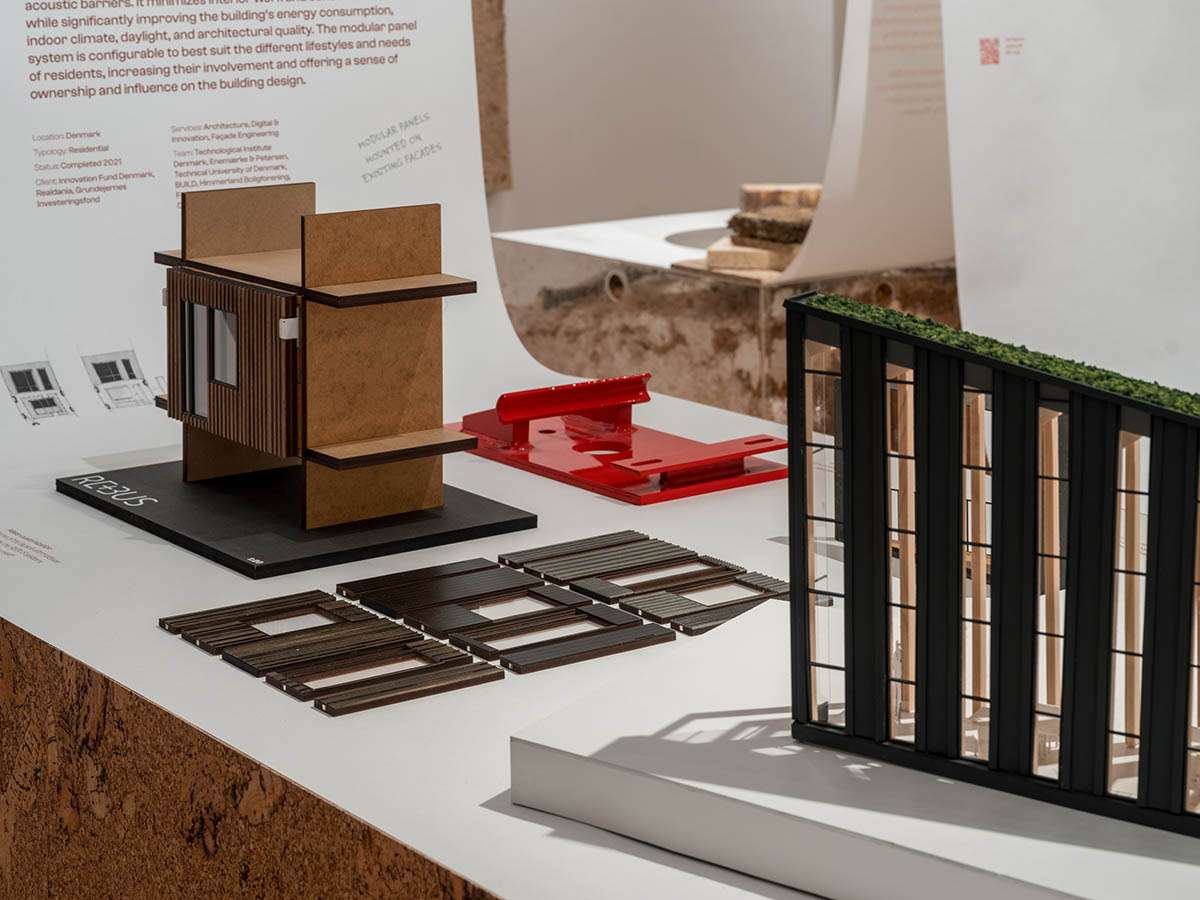
In this context, the office stressed that “the exhibits, including projects, materials and learning,
are not intended to be the final answer,
Rather, it is a response to the questions facing the industry today, while continuing to evolve as new, time-tested solutions.
For example, the Participant’s Room offers “Unboxing Carbon”,
an introductory course that provides knowledge and tools for calculating embodied carbon dioxide for building materials.
As visitors step inside the carbon box, this section allows visitors to explore, understand,
and understand the materials used in the industry and their footprint.
In addition, visitors can participate in a carbon offloading workshop by rating the exhibited items from good to bad.
Contains a large spreadsheet to provide setup for collaboration and discussion.
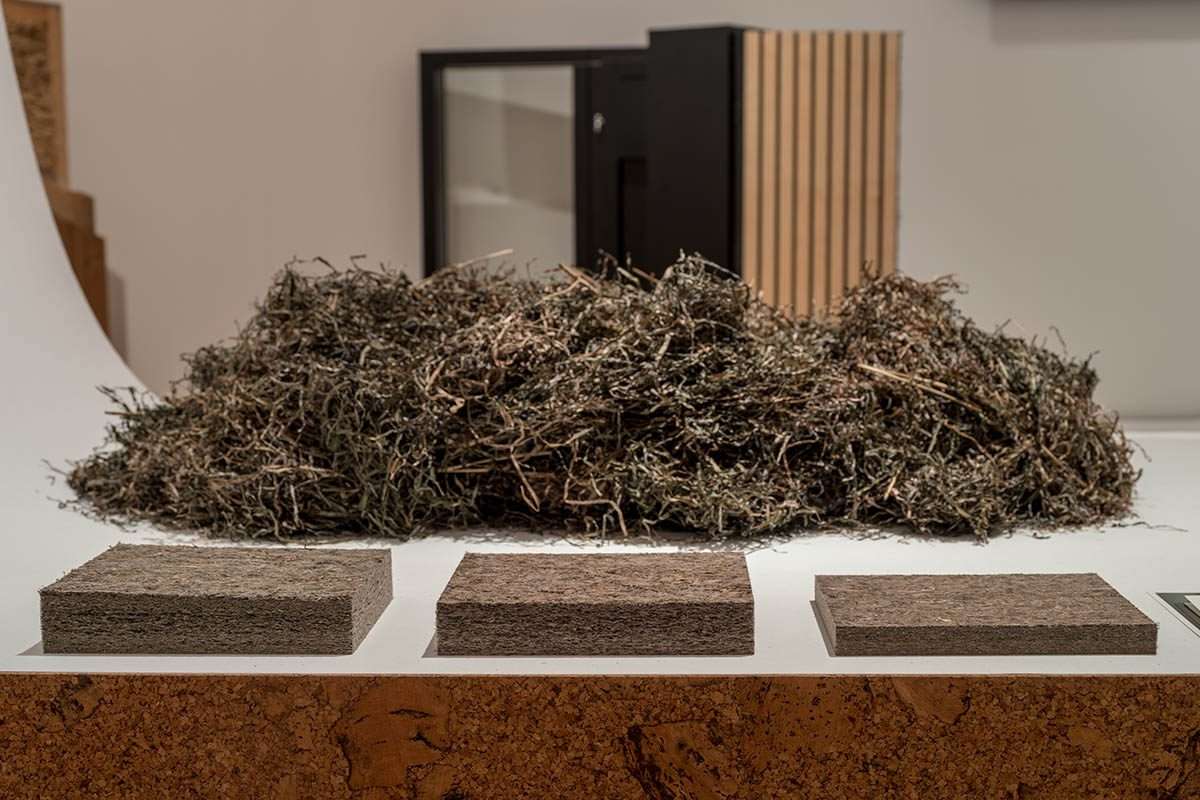
Other exhibits include building communities and projects that share resources,
such as cities, nature, water, our communities and a shared “raw material bank”.
Prioritize open source information
Also, as a general layout, the exhibition prioritizes open source information,
displaying Henning Larsen’s wood and biomaterials publication “Plant a Seed”.
It is free to download, along with the Unboxing Carbon Catalog.
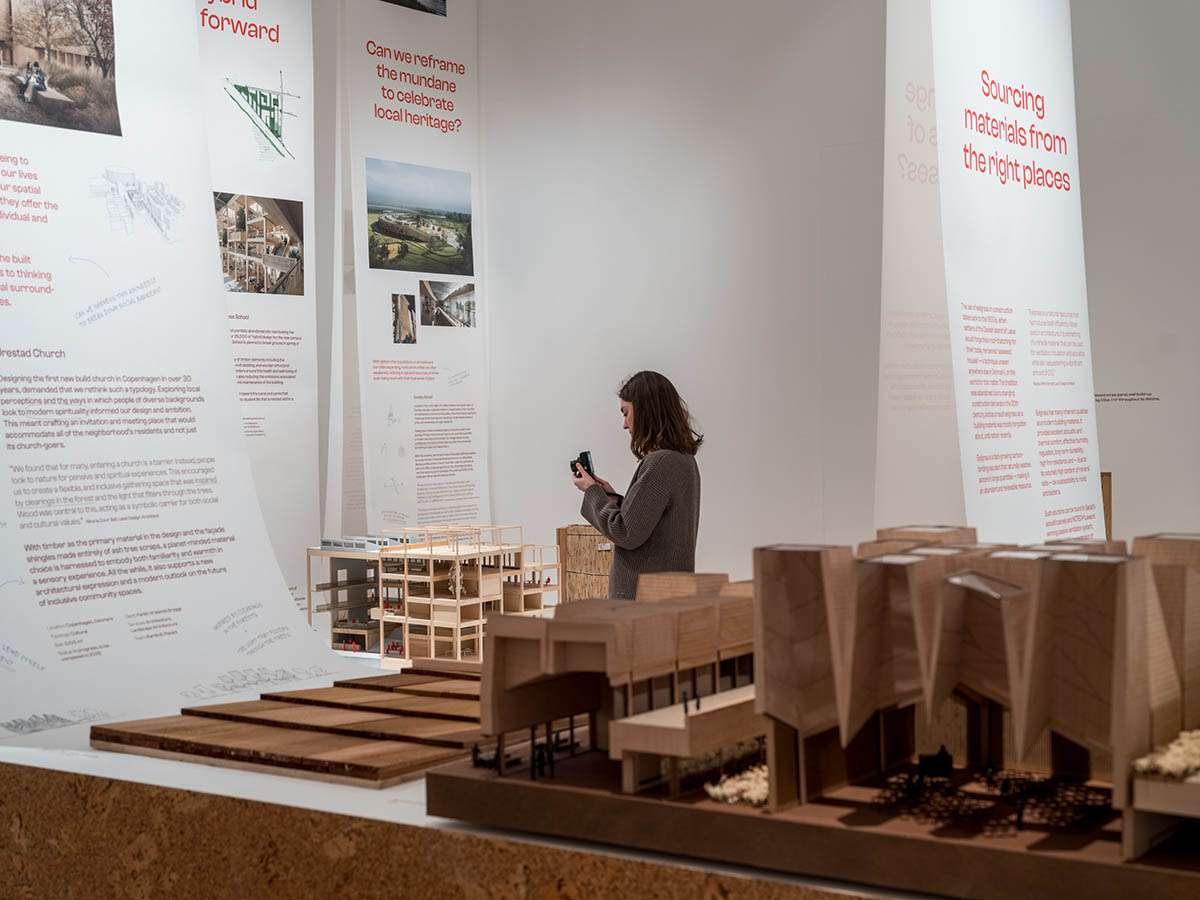
The Unboxing Carbon Catalog brings together architectures and presents the complex data from Environmental Product Declarations (EPDs) in a way that is visually accessible and easy to understand.
On the other hand, the “Exploration” section considers the development and practical use of different bio-based materials,
Such as wood, straw, gospel grass, pie, reused brick, low carbon concrete and clay.

Focus on specific topics
Besides, this section also focuses on specific topics such as conversion,
design for disassembly, 3D printing, acoustics and interior climate which are investigated in more detail.
Among the new digital tools to interact with is the Urban DeCarb app,
which can calculate and inform planners of the carbon footprint of an urban scale.
For more architectural news

